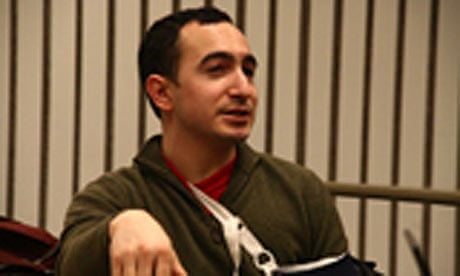A graduate student who was ordered to pay $675,000 for illegally downloading and sharing 30 songs has had the fine reduced by 90%.
Lawyers acting on behalf of Joel Tenenbaum said they felt "vindicated" after the fine was slashed to $67,500 by the same judge who presided over his original trial in 2009. Tenenbaum was successfully sued by the Recording Industry Association of America (RIAA) last year after he admitted downloading songs between 1999 and 2007.
"There is no question that this reduced award is still severe, even harsh," said judge Gertner. "Reducing the jury's $675,000 award also sends another no less important message: the due process clause does not merely protect large corporations, like BMW and State Farm, from grossly excessive punitive awards. It also protects ordinary people like Joel Tenenbaum."
In July 2009, Tenenbaum was ordered to pay the equivalent of $22,500 per song for illegally sharing 30 tracks through the peer-to-peer site KaZaA. The case came to court after Tenenbaum contested a fine imposed on him by the RIAA in the late 1990s, while he was still a teenager. He is now a postgraduate student at Boston University. Following the original ruling last year, Tenebaum said he would be forced to file for bankruptcy.
Speaking about the latest ruling, Tenebaum said that although he was happy that the fine had been reduced, he would still not be able to pay: "I don't have $70,000, and $2,000 per song still seems ridiculous in light of the fact that you can buy them for 99 cents on iTunes."
Tenenbaum's defence said: "We feel vindicated that judge Gertner agreed that $675,000 was an unconstitutional award. But it is only a step along the way toward recognising the abusiveness of the RIAA's litigation campaign. The next step is to demonstrate that Joel was denied a fair jury trial when judge Gertner told the jury in her instructions that it could award an unconstitutionally excessive amount."
The RIAA has expressed its dissatisfaction with the latest turn of events, saying that it will contest the reduction.
The ruling coincides with the prosecution of a father and son in north-east England, who were charged with profiting from unlicensed digital jukeboxes. Malcolm and Peter Wylie were sentenced to three years and nine months in prison respectively for supplying, installing and distributing jukeboxes to pubs and clubs across the north-east.
